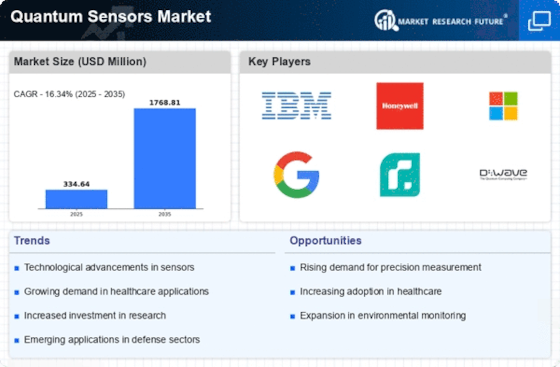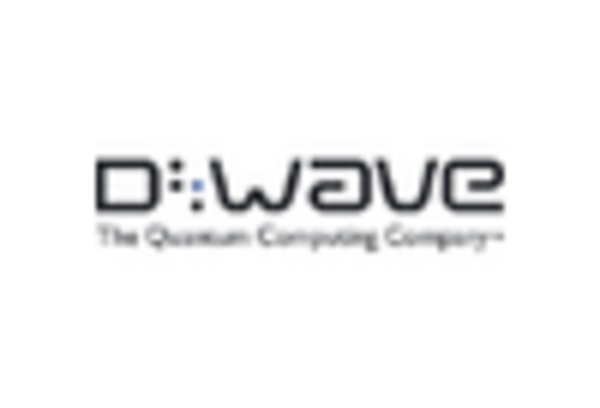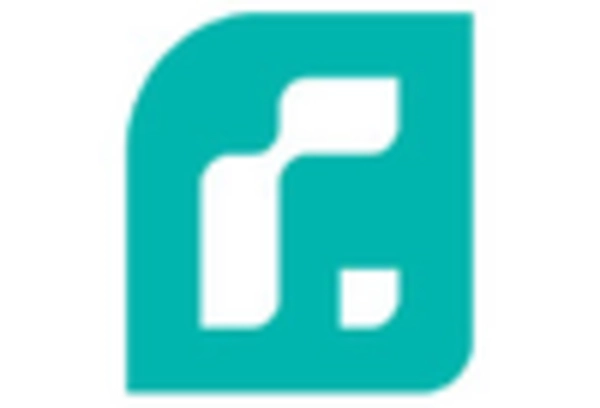Market Share
Quantum Sensors Market Share Analysis
Revolutionizing Telecommunications:
Quantum technology is poised to revolutionize the telecommunications sector, driven by the escalating demand for connected devices. Cisco's IBSG report projects a global connectivity milestone, with 50 billion devices anticipated to be connected through the Internet by 2020. Among them, 25 billion devices will be equipped with sensors, forming a reliable and secure ecosystem for data communication. Quantum sensing technology addresses the advanced timing and synchronization needs arising from the surge in sensor-enabled connected devices, enhancing the efficiency of data transfer and meeting diverse network requirements.
Quantum Clocks and Telecommunication Efficiency:
Quantum clocks are expected to play a pivotal role in the telecommunications sector, significantly improving the efficiency of data transfer. As the number of sensor-enabled devices continues to grow, quantum clocks provide the precision required for optimal network performance. The resulting impact on data transfer efficiency is poised to address the evolving demands of modern telecommunication networks.
Transport and Navigation Advancements:
Quantum technology's rapid advances extend to applications in transport and navigation. Quantum sensors utilizing cold atom technology, operating with a precision of 10 mm, are at the forefront of next-generation driving assistance, autonomous vehicles, and trains. Additionally, Tetra Hertz technology, another quantum sensing approach, monitors distances within a remarkable 1mm range. This high-resolution and precise quantum sensing technology finds applications in airfield radar systems, showcasing its versatility.
Anticipated Technological Advances:
The forthcoming years are expected to witness technological strides and increased collaborations among industry players, aiming to develop high-quality and reliable quantum sensors for diverse applications. These sophisticated sensors leverage single qubit (quantum bit) coherence, surpassing existing features in terms of resolution and stability. The quantum sensors market is set to benefit from heightened investments and seed funding dedicated to advancing quantum sensing technology. As a result, these developments promise to unlock new possibilities in medical diagnosis, material analysis, navigation, civil engineering, network synchronization, and beyond.
Quantum technology's multifaceted applications in telecommunications, transport, and navigation underscore its transformative potential, shaping the future landscape of connected devices and high-precision sensing capabilities.


















Leave a Comment